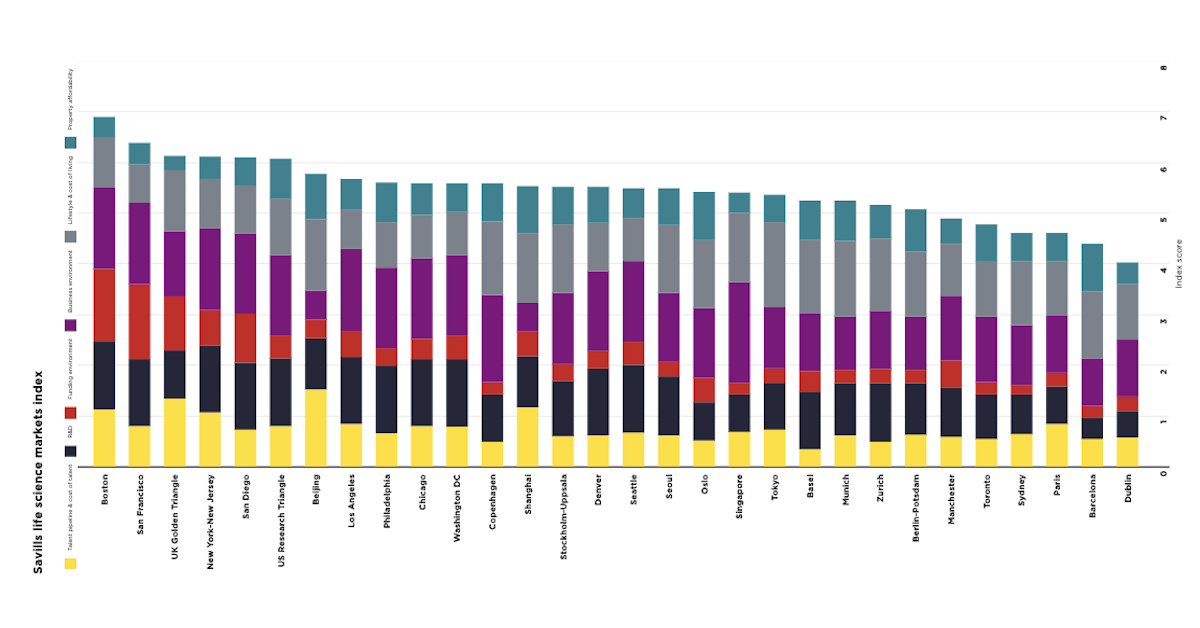The UK’s Golden Triangle has been ranked third in Savills’ global index of the world’s top 30 life science hubs.
While the US took eight of the top 10 places, only the Golden Triangle and Beijing were non-US clusters among them, taking third and seventh spots. Boston and San Francisco were first and second respectively..
The international real estate advisor examined locations based on the depth of their life science talent pools (including cost of talent), R&D investment and output, fundraising levels, business environment, cost of living and lifestyle factors and property affordability.
Savills says beyond the top 30 locations many more developing life science hotspots are emerging to offer greater cost advantages to occupiers without sacrificing access to a highly skilled workforce, often centred around academic institutions.
In the US those locations include Houston, Atlanta and Tampa; in Europe the Randstad cluster of Amsterdam, Rotterdam, The Hague and Utrecht in the Netherlands, Leuven in Belgium, Warsaw in Poland, Milan in Italy, and Edinburgh and Glasgow in Scotland and in Asia Pacific, Bengaluru and Pune in India and Melbourne in Australia.
Sarah Brooks, associate director in Savills World Research, said: “While the top 30 locations in our index continue to grow and offer the strongest ecosystems for life science occupiers – especially when it comes to accessing VC funding – other developing hubs may offer greater cost advantages to occupiers without sacrificing access to a highly skilled workforce.
“As the life sciences industry faces increasing pressures related to the cost of R&D, drug pricing, regulatory changes, and broader economic factors, there is a strategic opportunity for real estate strategies to drive cost optimisation.”
Rick Schuham, chief executive of global occupier services at Savills, said: “In a fast-changing world, life sciences occupiers are continually reassessing how real estate strategies can help them to stay ahead of the competition by accessing the right talent, supporting cost optimisation, and driving environmental sustainability.
“It’s the former, however, that’s increasingly important in selecting sites: the industry is competing ever more with others for key talent in data science, automation, Gen AI and advanced robotics, to deliver data analysis, drug discovery and laboratory optimisation.
“Many life science firms will therefore choose to locate in the top destinations in our index to access this specialist talent, balancing the considerable outlay against the promise of accelerating future growth and driving process innovation for cost advantage
“Others, however, may pay more consideration to the ability to compete for the best multidisciplinary talent in a market, and therefore developing life science hub locations may be more appropriate.”
© Thames Tap (powered by ukpropertyforums.com).
Sign up to receive our weekly free journal, The Forum here.












